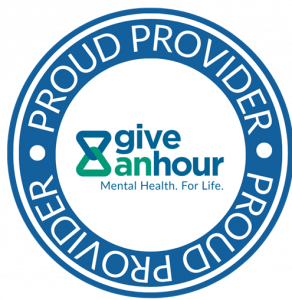According to a YouGov survey, 28% of couples fight about money. Worse, research on everyday marital conflicts finds that money related disputes tend to last longer, recur more often, feel more significant, and are less likely to be resolved than fights about other topics.
Money isn’t just money—it’s love, safety, fairness, freedom, and the irritation stemming from “Why did you blow $550 on new headphones when we can’t afford to fix the dishwasher?”
So, let’s bust a myth: “Separate bank accounts mean we won’t fight about money.” Cute idea. Too bad it doesn’t work.
You don’t get financial freedom just because you each have your own debit card. You still share a mortgage/rent, groceries, insurance, and the joy of streaming bills. Separate accounts don’t erase interdependence—they just make it easier to pretend.
The “I’ll Pay X, You Pay Y” Illusion
Dividing bills sounds so tidy: “You cover rent, I’ll take utilities.” Done, right? Wrong. That’s not a financial plan—it’s a roommate agreement.
Here’s what that neat little math “solution” ignores:
- Income gaps = power gaps. The partner earning less often feels like they have less voice in how money is spent.
- Not all contributions are financial. Housework, childcare, and emotional labor don’t show up in a checking account, but hey: this is a relationship blog. Ignore those contributions at your peril.
- Hidden resentments thrive in silence. What feels “fair” to one partner may feel forced or inequitable to the other.
The truth is, “I’ll pay X, you pay Y” is a shortcut. And shortcuts in relationships usually mean skipping the hard stuff—like values, fairness, and trust… foundational elements of a healthy intimate relationship.
California Reality Check
Quick disclaimer: I’m a therapist, not your lawyer. If you need legal advice, talk to one.
For married couples in California (and other community property states), separate accounts don’t actually mean separate assets. You might feel more independent, but the court may see it differently.
Which brings us back to the real question: Are you using separate accounts for healthy autonomy—or as a way to keep secrets? If you can’t show your partner your bank statement, but you’re fine letting them see you drool in your sleep, we might need to talk about your definition of “healthy autonomy”.
Relationship First, Money Second
Money fights aren’t usually about money.
Fights about money – and agreements about money – are fights and agreements about the relationship. So before you even touch the numbers, ask yourselves: What kind of team do we want to be?
- Do we want an all-in partnership with full financial transparency?
- Or do we want to allow for individual autonomy—and if so, how much?
Put bluntly: if you’re ready to share a life together but not your financial truths, don’t be surprised when trust issues show up in both places.
Separate (but still huge) factor: your family of origin shaped your comfort with money long before you met your partner. If no one ever taught you to budget, or money was a taboo topic in your house, then you’ve got some extra work to do. You can’t commit to what you don’t understand.
Household Finance Hack
Here’s a hack that works for most couples:
- Start with values. What matters more—security, fun, generosity, growth? Name them together.
- Fund “Ours” first. Housing, food, insurance, kids, savings, shared goals. Take care of the team before the individuals.
- Then carve out discretionary dollars. Note: dollars, not categories. That means your slice of money is yours to spend—no judgment. If you want three boxes of donuts, a new purse, or the latest Apple Watch, that’s your business. No snark from your partner required.
- Automate visibility. Use apps like Mint, YNAB, or Monarch to track spending and categorize it automatically. That way no one partner ends up stuck playing Accountant of Doom at the kitchen table with a spreadsheet.
- And here’s the key: everyone contributing to the budget gets to see the budget and the spending. Even if a partner isn’t at all interested in the money, knowing they can see whatever they want to see whenever they want to see it is a sure fire way to build trust and safety.
Bottom Line
Separate accounts don’t stop fights. Shared clarity doesn’t guarantee peace either—but it gives you a fighting chance. Autonomy only works if it’s framed as “this is for me” and understood as “it’s still part of us.”
Your money system is an expression of your relationship. Decide what kind of relationship you want, and let the money plan reflect that. Otherwise, you’re just roommates with benefits and joint Wi-Fi (and maybe a couple of shared streaming passwords).













